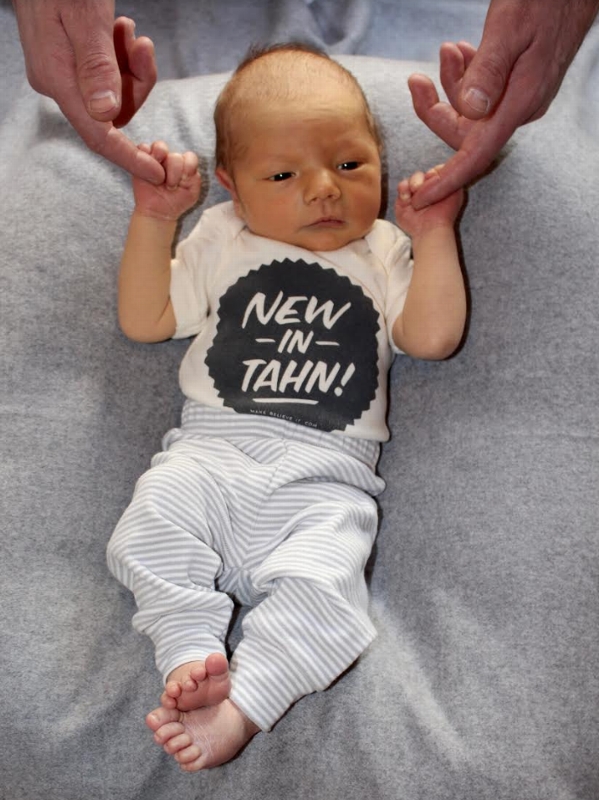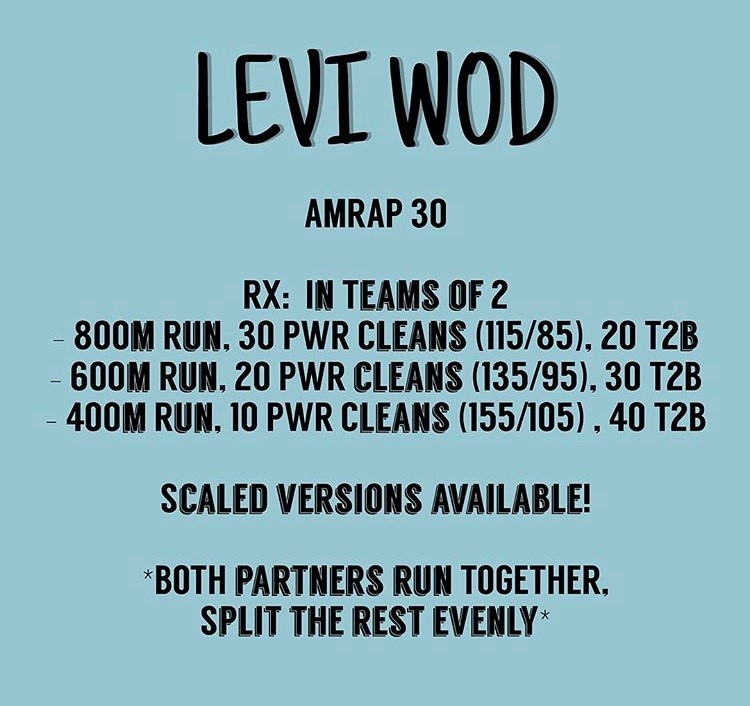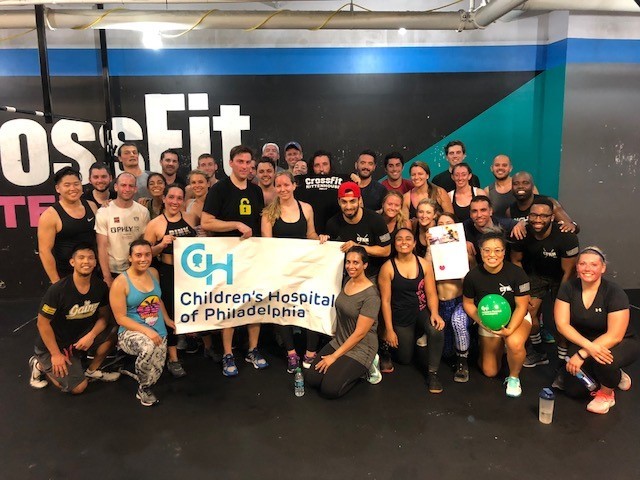
Levi’s Story
Levi James Asia was born late in the evening on February 13, 2018, arriving right on his due date and bringing immense happiness to his parents and family. Although appearing to be a happy and healthy baby when he was born, Levi became sick and passed away exactly two months later from complications resulting from a rare variation of mitochondrial disease. During his time here, Levi left an indelible mark on everyone he met, and with your help, we hope that Levi can continue to have an impact by bringing increased awareness and progress to the complex medical field of mitochondrial disease.
Our Second Annual Event: Saturday June 22nd 2019
To honor and remember Levi Asia, Crossfit Rittenhouse organized a demanding "WOD" or workout of the day, and fundraiser. Last year we were honored to collaborate with 7 other gyms across the nation as they also took on this fundraising and work out challenge. This year we hope to build an even bigger family of gyms working towards this one goal. We began our mission hoping to raise 5,000 dollars and by the end of our event raised nearly 20,000 dollars to go directly to Mitochondrial Disease Research to treat babies like Levi. This year, the sky is the limit.
If you'd like to participate as an individual or as a gym email schindewolfe@email.chop.edu
Gyms Participating this year:
CrossFit Rittenhouse: 2300 Chestnut Ave Phildelphia PA, 19031 https://crossfitrittenhouse.com/
Crossfit Elation: 3830 W Lincoln Highway Downingtown PA, 19335 http://crossfitelation.com/
Pike Fitness: 91 Wilmington W Chester Pike Chadds Ford, PA https://pikefitness202.com/
Hudson River Fitness: 1320 Adams Street, Suite B, Hoboken, NJ https://www.hudsonriverfitness.net/
Crossfit Salisbury: 406B Marvel Rd Salisbury, MD 21801 https://crossfitsby.com/
Crossfit Royalty: 2550 Blvd of the Generals Suite 190 Trooper, PA 19043 www.crossfit-royalty.com






If you want to have your own LEVI's WOD
- Just contact us and we can make it happen! Email schindewolfe@email.chop.edu
- Your donations will go towards CHOP's Mitochondrial Research Lab which benefits families who are undergoing similar diagnoses and work towards finding treatments and a cure for mitochondrial disease.
To learn more about how mitochondrial disease affects families across the globe access this video:
What is mitochondrial disease?
The mitochondria is a specialized compartment within almost all cells of the body. The mitochondria are the key players in producing over 90% of the body’s energy needed to sustain life and support organ function. When they fail, less and less energy is generated within the cell. Cell injury and even cell death follow. If this process is repeated throughout the body, whole organ systems begin to fail.
The parts of the body, such as the heart, brain, muscles and lungs, requiring the greatest amounts of energy are the most affected. Mitochondrial disease is difficult to diagnose, because it affects each individual differently. Symptoms can include seizures, strokes, severe developmental delays, inability to walk, talk, see, and digest food combined with a host of other complications. If three or more organ systems are involved, mitochondrial disease should be suspected.
Although mitochondrial disease primarily affects children, adult onset is becoming more common.
- Diagnosis
- Every 30 minutes, a child is born who will develop a mitochondrial disease by age 10. Overall, approximately 1 in every 4,300 individuals in the United States has a mitochondrial disease. Given the various potential presentations that may occur, mitochondrial disease can be difficult to diagnosis and is often misdiagnosed.
- Causes
- Mitochondria are unique in that they have their own DNA called mitochondrial DNA, or mtDNA. Mutations in this mtDNA or mutations in nuclear DNA (DNA found in the nucleus of a cell) can cause mitochondrial disease. Environmental toxins can also trigger mitochondrial disease.
- Treatment
- Currently there is no highly effective treatment or cure for mitochondrial disease. The management of mitochondrial disease is supportive therapy, which may include nutritional management, exercise and/or vitamin or amino acid supplements.
For more resources go to: http://www.umdf.org/ or http://www.chop.edu/centers-programs/mitochondrial-disease-clinical-center
How can I help?
If you’d like to participate or support our efforts please donate through this page.
If you’d like to send a check instead of online fundraising, please write a check in Levi’s honor to: CHOP Foundation PO Box 781352 Philadelphia Pa, 19178 and in the check memo please write: Falk Lab Mito Research Fund- In Levi Asia’s Honor






Get The Word Out
https://chop.donordrive.com/campaign/Levi-WOD-